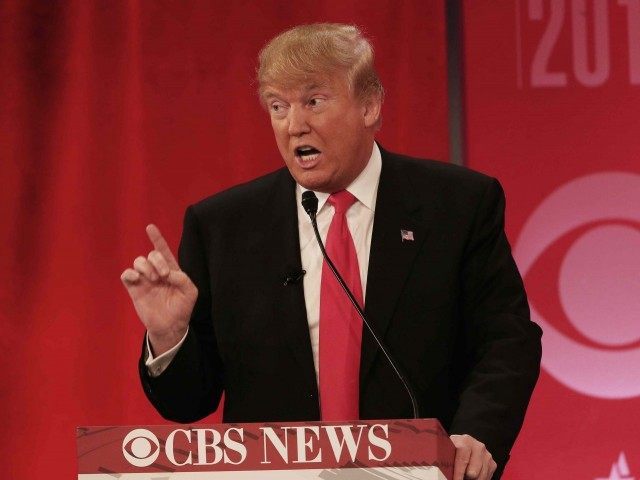Republican frontrunner Donald J. Trump took the unusual step of attacking former Florida Gov. Jeb Bush for his brother’s alleged negligence during the terror attacks of Sep. 11, 2001.
It was not the first time Trump had done so during his campaign. Yet it raised eyebrows, since blaming George W. Bush for 9/11 has typically been common on the far-left fringe of American politics, not in the Republican Party–much less in Bush-friendly South Carolina.
Conspiracy theorists have long claimed that George W. Bush not only failed to stop the 9/11 attacks, but that he also knew about them, or engineered them as a pretext to launch a global war.
Trump is not going that far, but rather challenging the GOP mantra that “he kept us safe,” as Sen. Marco Rubio (R-FL) said in Bush’s defense. Indeed, in the years after 9/11, there was only one successful terror attack on U.S. soil, and none from mid-2002 to 2009.
Trump is arguing that Bush was asleep at the switch. It is clear the Bush administration missed warnings that Al Qaeda was planning a major attack. It is also clear that President Bill Clinton had done so, as well–and had also declined the opportunity to kill Osama bin Laden. Bush, moreover, wanted to reverse Clinton’s “nation-building” abroad, and to reduce America’s role in the Middle East–a posture of retreat that may have invited further attack.
After 2003, the difficulty of the Iraq War caused more Americans to conclude that Bush was to blame for failing to stop the 9/11 attack. A CNN/USA Today/Gallup poll released in 2006 suggested that the number of Americans who blamed Bush had risen significantly, from 34% to 45%. However, a similar proportion, 41%, also blamed Clinton. A plurality of Americans, both in 2001 and 2006, said they did not blame either administration “at all” for 9/11.
The consensus position in American politics is that both parties were to blame for the intelligence failures that led to 9/11, and for the “law enforcement” mentality that treated terrorism as a mere criminal problem. Since 2009, President Barack Obama has challenged that consensus by returning to a “law enforcement” approach, and by minimizing the role of radical Islam. The question of whether Bush was to blame for 9/11 has been a moot one.
In the fall of 2015, when Trump first began attacking Jeb Bush over his brother’s role on 9/11, analysts suggested that what Trump was really doing was reminding voters that Jeb and W are connected.
Initially, the former Florida governor had been at pains to keep his brother at arm’s length, at least in public. George W. Bush had left office as a deeply unpopular president, with the country in financial distress. And voters were skeptical of a Bush dynasty.
With Bush a spent force, it is less clear why Trump would revive the attack. The issue re-emerged when Trump was asked by the moderator whether he still believed, as he indicated in 2008, that George W. Bush should have been impeached for “lies” in the Iraq War. After his reply, Jeb Bush said: “While Donald Trump was building a reality TV show, my brother was building a security apparatus to keep us safe.” So Trump responded by discussing 9/11.
But there was also a tactical value, once again, to Trump arguing about 9/11. By enraging Bush, who is lingering in fourth place in the RealClearPolitics poll average, Trump denied air time to Rubio and Sen. Ted Cruz (R-FL). And Rubio, in defending Bush, also defended the Iraq War, needlessly.
To conservative critics, Trump’s comments on 9/11 made him sound like a Democrat. But they also made his rivals seem less viable–which suits him just fine.

COMMENTS
Please let us know if you're having issues with commenting.